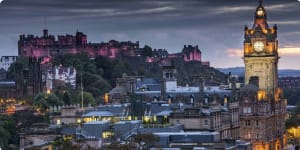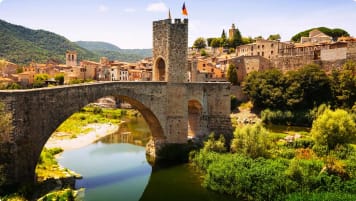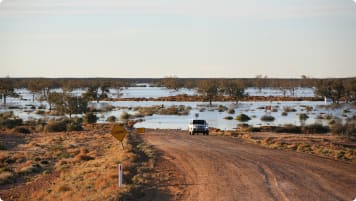Jacobites, Scottish History small group mature travellers tour
From $10,571USD
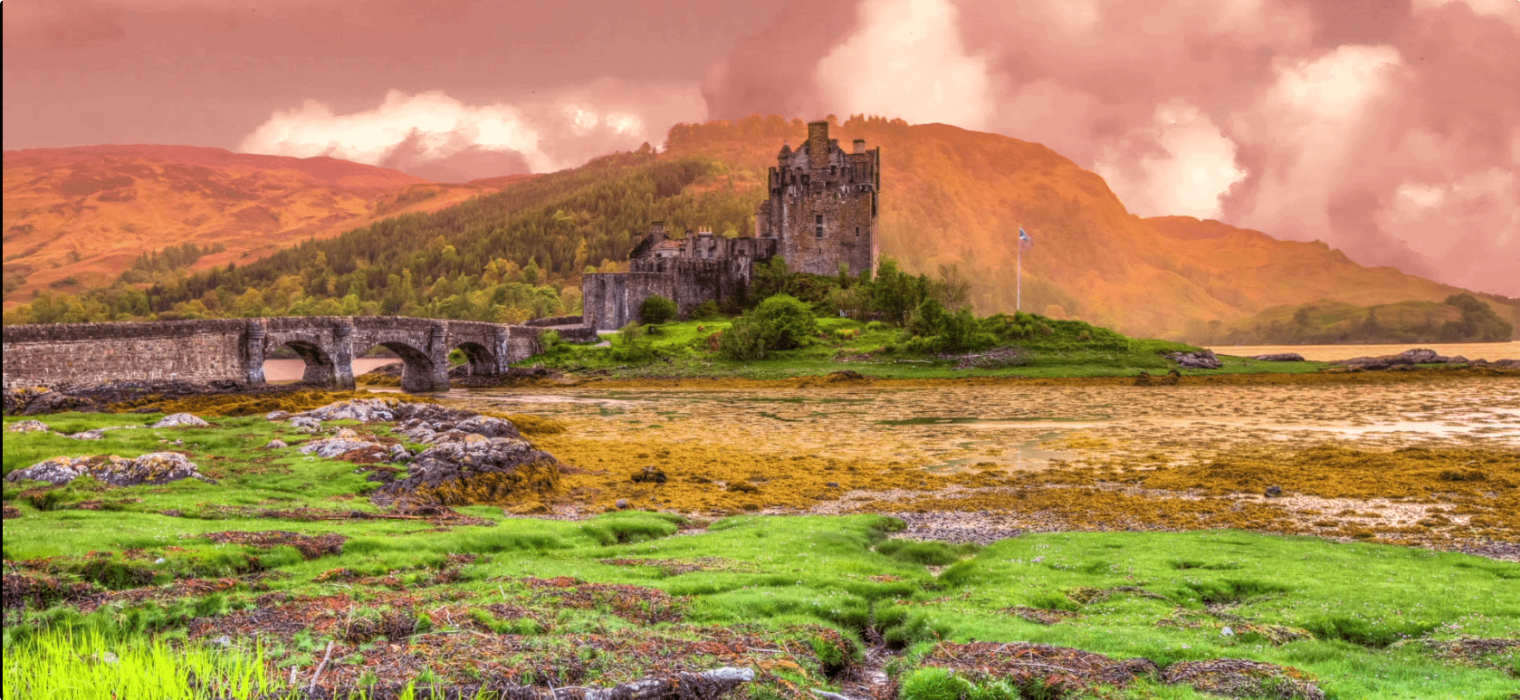
Highlights
- 1. Visit key locations where events that shaped the history of the Jacobites occurred
- 2. Enjoy the stunning Scottish scenery as we travel through the country
- 3. Conduct Ancestry research at the Scottish ancestry research centre
- 4. Spend 13 days touring rural Scotland beyond the major cities of Edinburgh and Glasgow
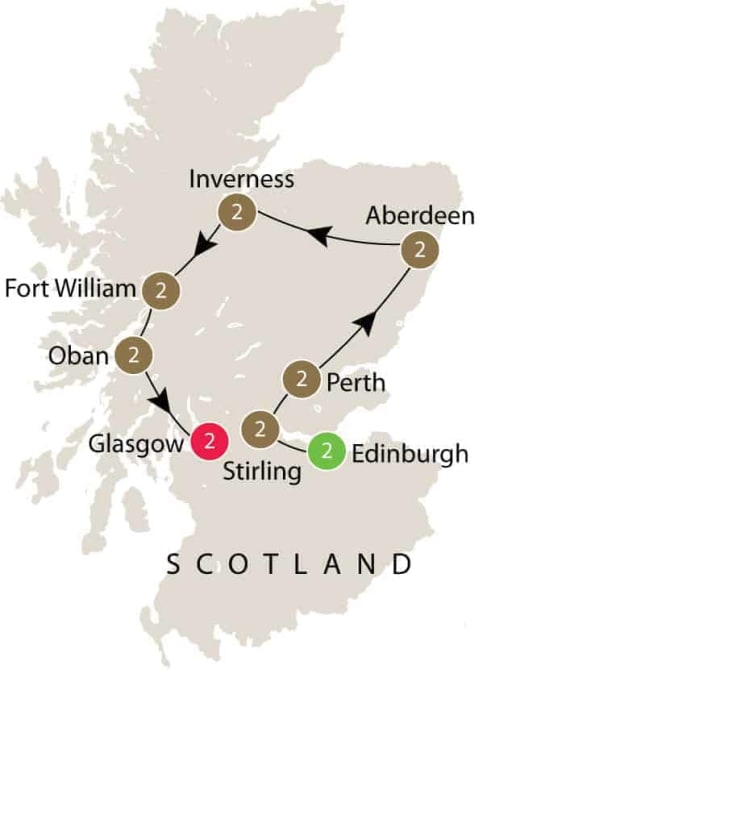
Departure Dates
| Departure Date | Price |
|---|---|
| 05 July 2026 Ends 21 July 2026 • days $10,571 Twin $12,299 Single Available | Selected |
History of the Jacobites small group tour
Odyssey offers easy, convenient, and relaxed escorted small group tours across Fabulous Scotland and beyond. We explore Scotland's natural beauty, its ancient Roman, and Gaelic heritage, its World Heritage Sites, and world famous cities, all with some truly spectacular scenery along the way. This and more is all waiting to be explored on one of Odyssey’s small group themed tours of Scotland , designed for the senior traveller, and led by experienced, and enthusiastic like minded people.
Over the course of this 19-day Jacobites & Scottish History small group tour, we explore the stunning scenery and the remarkable history of Scotland. This tour, focused on the history of the Jacobites, commences in Edinburgh. We travel from Edinburgh as far north as Inverness, and then south again to finish in Glasgow.
We stay in 8 locations across Scotland, learn from 10 specialist guides about the Jacobites, all while exploring 28 places and taking part in diverse experiences across the duration of this tour.
Tour Highlights
Our Jacobites, Scottish History small group mature travellers tour is offered in mid-August, letting you take advantage of the extraordinary long summer nights. In Edinburgh, you spend 3 nights enjoying visits to Edinburgh castle, National Museum and Holyrood Palace.
Next is Stirling for 2 nights. From Stirling you travel north to Perth and on to Aberdeen. You visit Linlithgow Palace, Doune Castle and Alloa Tower along the way. Local guides enjoy sharing their stories with you at these historic locations.
Moving towards Inverness, you learn about Culloden battlefield and Urqhuart Castle. You travel south now to Fort William for two nights and then Oban. Along the way on this section of the tour we listen to a local guide's tale of the 1692 massacre at Glencoe. Finally we finish the tour in Glasgow.
Jacobites, Scottish History tour is structured for the senior or mature couple or solo traveller. This tour is for the traveller who enjoys exploring and learning in a small group environment.
If you would like to learn more about Scotland, visit our country profile where all the other tour departures are listed as well. For more details about this tour, click the ‘Top 5’ or ‘Itinerary’ buttons above! If you’re keen to experience this tour, please call or send an email. Or, to book, simply fill in the form on the right hand side of this page.
Articles about Scotland published by Odyssey Traveller
The following list of articles are either published by Odyssey Traveller or are carefully selected external source to maximise senior travellers' knowledge and enjoyment of Scotland when visiting:
Gallery
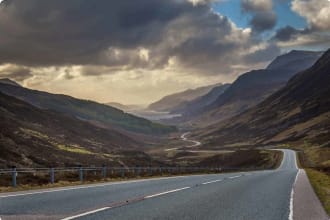

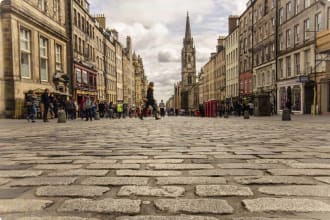
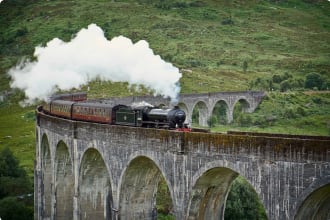

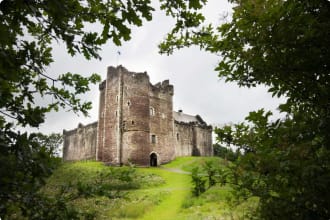
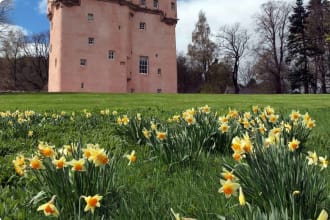
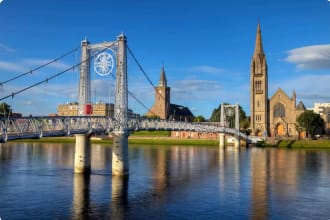
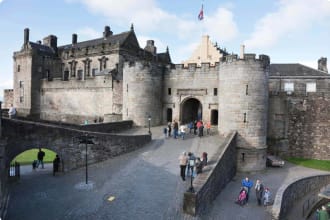
Itinerary
17 days
Day 1: Edinburgh
Accommodation: 2 nights at Jury's inn Edinburgh Centre or similar.
Upon arrival in Edinburgh, we will come to the hotel individually. We will enjoy a welcome dinner at a local restaurant.
(D)
Day 2: Edinburgh
Accommodation: Jury's inn Edinburgh Centre or similar.
A full day in Edinburgh includes Edinburgh Castle, the last castle held for James VII after a three month siege of the castle in 1689, following the invasion of the Protestant William and Mary in 1688. This then resulted in the exile of James VII (also James II of England) and, as a result, is the ideal location from which to begin this Jacobite tour. Edinburgh castle also featured in the Jacobite rebellion of 1715 (the second of the three main rebellions) when Jacobite Highlanders successfully scaled the castle walls but failed to take the castle. Similarly, in 1745, Bonnie Prince Charlie led a Jacobite army which captured Edinburgh town but again failed to take the castle.
Following the castle visit we’ll make our way to the National Museum of Scotland for a short visit.
In order to incorporate Ancestry into this tour the tour includes an optional evening at Scotland’s People Family History Centre. Research assistants there will assist you in finding records of Scottish ancestors you may have.
Please note that this could be an invaluable opportunity for some groups or members of the group but for others it may not be worthwhile and the website highlights that any ancestors in Scotland before 1855 may be difficult to find. It will also be necessary for the group to have some names and ideas of birth, death or marriage dates to work from.
Day 3: Edinburgh
Accommodation: Jury's Inn Edinburgh or similar.
The itinerary includes a visit to Holyrood Palace where Bonnie Prince Charlie took up residence in 1745. Here the group can see where the prince lived, held balls and conducted official business.
The group transfer out of the city centre to visit HMY Britannia in the afternoon. The HMY Britannia was launched from the John Brown & Company shipyard in Clydebank, Scotland, on 16 April, 1953 and ror over 44 years the Royal Yacht served the Royal Family, travelling more than a million nautical miles to become one of the most famous ships in the world.
Day 4: Stirling
Accommodation: Golden Lion Hotel Stirling, or similar
A transfer to Lithlingow Palace is included. On the banks of Lithlingow Loch, this country residence was visited by Stuart kings of Scotland. In 1745 the Palace was visited by the advancing army of Charles Edward Stuart and by the Duke of Cumberland and his troops in 1746, in pursuit of the retreating Jacobites.
In the afternoon the more modern construction, the Falkirk Wheel can be visited. A stop at the near by Helix park is included where the group can view The Kelpies sculpture. A self-guided walking tour is optional.
Day 5: Stirling
Accommodation: Golden Lion or similar Stirling
The impressive Stirling Castle is included in the morning; the castle has a particular connection with the Jacobite cause. In 1746, it was the location of an unsuccessful siege by Charles Edward Stuart when marching to Culloden.
In the afternoon we transfer to Crieff for a distillery guided tour and tasting.
Day 6: Perth
Accommodation: Mercure Perth Hotel or similar Perth
A morning transfer to Doune Castle is included, the filming location of Monty Python and the Holy Grail. I have included the audioguide at this castle as the reviews suggest it is very entertaining. The Castle is connected to the Jacobite theme of the tour by its use as a government prison from 1746 after having been taken by the Jacobites in 1745.
On our way to Scone Palace gardens we stop to view Alloa Tower.
We arrive at our hotel in Perth in time for dinner.
Day 7: Perth
Accommodation: Mercure Hotel Perth or Similar
Huntingtower Castle, former home of strong Jacobite supporters in the 1715 rebellion, is included in the morning. This is followed by a visit to the Blackwatch regiment museum. The Black Watch was formed by the government in the wake of the Jacobite rebellion of 1715. Originally comprised of groups of trustworthy highlanders, the Black Watch would patrol the highlands enforcing the new laws proclaimed by the government which restricted the weapons carried by the highland clans.
The afternoon is at leisure for you to explore on your own one of the many attractions the city has to offer.
Day 8: Aberdeen
Accommodation: The Links hotel Aberdeen or similar
The Clan Donnachaidh Museum is included. It is a very small museum dedicated to clan heritage on the highland clans and this will only be a short visit.
The Battle of Culloden changed the highland way of life forever and this museum will provide an insight into Scottish culture.
In the afternoon a walking tour at Killiecrankie is included where the first battle in the Jacobite rebellion took place (1689). A visit to the House of Dun is included on the way to Aberdeen.
Day 9: Aberdeen
Accommodation: Park Inn by Radisson Aberdeen or similar
There are many castles in Scotland that would be relevant to a Jacobite tour, we have choose a few. Drum Castle has a lovely rose garden and is a Jacobite Castle and was held by Jacobite supporters who fought alongside Bonnie Prince Charlie at the Battle of Culloden. Craigievar Castle contains a manuscript giving the order for the Battle of Culloden (note: the castle is currently closed until 2024 due to major conservations works taking place).
The group continues on to Kildrummy Castle which was the home of John Erskine who launched the 1715 uprising.
Day 10: Inverness
Accommodation: Royal Highland hotel or similar Inverness
Today we enjoy a Jacobite themed tour through Aberdeed and view the main sights including Mercat Cross, RObert Gordon’s castle and visit Tolbooth Museum or alternative attraction. (note: Toolbooth museum is temporarily closed whilst a comprehensive survey of the historic building is carried out)
We transfer to Sauchen and explore Castle Fraser before continuing to Inverness where we will be based for the next two nights.
Day 11: Inverness
Accommodation: Royal Highland hotel or similar Inverness
The impressive Fort George is included this morning. It is a military fortress which has barely changes in 250 years. The Battle site of Culloden Moor and the new visitor centre is included in the afternoon.
It was here on April 16th 1746 that the last battle on British soil was fought. Following recent excavations on the battlefield, historians now label the battle a civil war between those who wanted the Stuart kings restored to the throne and those who wanted to retain the status quo. English and Scottish, Protestants and Catholics, and men from the same clans fought on both sides. The new centre houses a fascinating exhibition. A tour of the battlefield will show us even further detail of the events of that fateful day.
Day 12: Fort William
Accommodation: Clan MacDuff or similar
From Inverness the group travels along Loch Ness to Urquhart Castle in Drumnadrochit for impressive views of the surrounding countryside.
We travel on to Fort William and the remainder of the day is at leisure.
Day 13: Fort William
Accommodation: Clan Macduff hotel Fort William or similar.
The Jacobite steam train runs from Fort William to the coastal town of Mallaig, passing the Glenfinnan viaduct (seen in the Harry Potter films). A one way ticket for the Jacobite train is included so that, on the return journey in the coach, the group can stop at the Glenfinnan Monument and Loch Nam Uamh, where Bonnie Prince Charlie landed in 1945.
We enjoy a group lunch at Mallaig and later rejoin our coach to visit Loch Nan Uamh and Glenfinnan Monument before we return to our hotel in Fort William for dinner.
Day 14: Oban
Accommodation: Muthu Alexandra Hotel or similar
In the morning a tour within the spectacular landscape of Glencoe is included. This is the site of the 1692 massacre of MacDonald Jacobite supporters were killed by government troops.
In the afternoon we visit Dunstaffnage Castle. The castle is famous for having held Flora MacDonald captive after she helped Bonnie Prince Charlie escape after the battle of Culloden.
We transfer to Oban and have dinner at our hotel this evening.
Day 15: Glasgow
Accommodation: Leonardo Hotel Glasgow or similar
A day at Loch Lomond is included. The itinerary includes a transfer from Oban to Port of Menteith for an excursion to the scenic Inchmahome Priory, a sanctuary visited by key figures in Scottish history and culture.
From here the group will transfer to Glasgow where the afternoon is at leisure for you to enjoy the city at your own pace.
Day 16: Glasgow
Accommodation: Leonardo Hotel Glasgow or similar.
A full day guided tour of Glasgow is included, in the morning we visit the Museum of Piping where the group can learn more about Scottish culture and have the opportunity to hear the bagpipes.
In the afternoon we visit the Kelvingrove Art Gallery and Museum which featuresfeatures 22 themed, state-of-the-art galleries displaying an astonishing 8000 objects.
This evening we enjoy a farewell dinner at a local restaurant.
Day 17: Glasgow
Our tour will end today after breakfast.
Includes / Excludes
What’s included in our Tour
- 18 nights of accommodation.
- 18 breakfasts, 1 lunch, and 8 dinners.
- Transport in comfortable and modern coaches.
- Ferry services.
- All excursions, entrance fees, and local guides.
- Gratuities and necessary tips.
- Services of a Tour Leader for the duration of tour.
What’s not included in our Tour
- International airfares and departure taxes.
- Comprehensive travel insurance.
- Items of a personal nature such as telephone calls and laundry.
Participants must be able to carry their own luggage, climb and descend stairs, be in good health, mobile and able to participate in 3-5 hours of physical activity per day, the equivalent of walking / hiking up to 8 kilometers per day on uneven ground.
Book now
Make it a private tour
Easing your journey
Crossing international borders with restrictions
The list of requirements to travel internationally has changed and will continue to change for several years. Odyssey is here to assist you in managing your way through these requirements:
For more information see our Crossing international borders with restrictions page.
Book With Confidence
If less than 30 days before your tour starts you are unable to travel as a result of Government travel restrictions, Odyssey Traveller will assist you with a date change, provide you with a credit or process a refund for your booking less any non-recoverable costs.
See Terms and conditions for details.
Peace of Mind Travel
The safety of our travellers, tour leader, local guide and support staff has always been our top priority and with the new guidelines for public health and safety for keeping safe for destinations around the world, we’ve developed our plan to give you peace of mind when travelling with us.
See Peace of Mind Travel for details.
Reading List Download PDF
Jacobites: A New History of the '45 Rebellion
Jacqueline Riding
The 1745 Jacobite Rebellion was a turning point in British history. When Charles Edward Stuart, commonly known as the Young Pretender, sailed from France to Scotland in July 1745, and with only a handful of supporters to claim the throne for his exiled father, few people within Britain were alarmed. But after he raised the Stuart standard at Glenfinnan in the Western Highlands, destroyed a contingent of the British army at Prestonpans near Edinburgh, and then marched south into England, swiftly reaching Derby, the rising threatened to destabilise the British state, dethrone King George and the Hanoverian dynasty, while disrupting Britain's military capability in Europe and colonial activities in America and beyond.
Less than four decades after the controversial Act of Union between Scotland and England, arrogance and incompetence on the part of government ministers had allowed the small danger Charles and his Jacobite army had initially posed to escalate into a full-scale civil war: part of the on-going dynastic, political and ideological struggle for the heart and soul of this new nation.
Yet the reality of the '45 continues to be obscured by fiction and myth, as personified by the heroic, gallant but doomed 'Bonnie Prince Charlie' versus the heartless victor, 'Butcher' Cumberland. In the years 1745-6 nothing was certain. While utilising past and recent scholarship, this magnificent account draws extensively on a wealth of contemporary sources, revealing the thoughts and feelings of the key players and local eyewitnesses as these extraordinary events played out. What emerges is a story more complex, paradoxical and even tragic than the myth suggests.
From the exiled Stuart court in Rome to the palaces of Versailles and Holyroodhouse, from the battlefields of Flanders to Falkirk and Culloden, Jacobites brilliantly sets the '45 in its full and proper context on the stage of European history. And in our own time of seismic shift for the Union, the British political system, constitution and monarchy, Jacobites offers a timely re-telling of this critical episode in our island's shared past.
The Last Royal Rebel: The Life and Death of James, Duke of Monmouth
Anna Keay
James, Duke of Monmouth, the adored illegitimate son of Charles II, was born in exile the year his grandfather was executed and the English monarchy abolished. Abducted from his mother on his father's orders, he emerged from a childhood in the backstreets of Rotterdam to command the ballrooms of Paris, the brothels of Covent Garden and the battlefields of Flanders. Pepys described him as 'the most skittish, leaping gallant that ever I saw, always in action, vaulting or leaping or clambering'.
Such was his appeal that when the monarchy itself came under threat, the cry was for Monmouth to succeed Charles II as King. He inspired both delight and disgust, adulation and abhorrence and, in time, love and loyalty almost beyond fathoming. Louis XIV was his mentor, Nell Gwyn his protector, D'Artagnan his lieutenant, William of Orange his confidant, John Dryden his censor and John Locke his comrade.
Anna Keay matches rigorous scholarship with a storyteller's gift to enrapturing effect. She brings to life the warm, courageous and handsome Duke of Monmouth, a man who by his own admission 'lived a very dissolute and irregular life', but who was ultimately prepared to risk everything for honour and justice. His life, culminating in his fateful invasion, provides a sweeping history of the turbulent decades in which England as we know it was forged.
Fight for a Throne: The Jacobite '45 Reconsidered
Christopher Duffy
The bid of Bonnie Prince Charlie and his Jacobites for the throne of Britain has never lost its grip on the popular imagination. In July 1745 he and a tiny group of companions arrived in Scotland. They came unannounced and unsupported, and yet within less than five months Charles was able to lead an army to within marching distance of London and make King George II fear for this throne. Afterwards the Highland Army continued to out-fight the redcoats in every encounter, except its very last. These were not the achievements of a backward-looking cause, and this ground-breaking study is the first to explain exactly why.
Almost to the very end the Jacobites had the literal and metaphorical‘edge’ over their enemies, thanks to the terror-inspiring highland charge, and also, as this book as this book is the first to reveal, to the highly-advanced organisation of their forces in ‘divisions’ – miniature armies that allowed them to out-manoeuvre their enemies on the strategic plane. At the same time Prince Charles made a credible bid for the political and ideological high ground, an appeal based on religious toleration, and a monarchy working in cooperation with an empowered and accountable Parliament. The Prince therefore not only drew on traditional loyalties, but attracted the support of heavyweights of the new ‘Enlightenment’. It all made a telling contrast to the demeaning nature of the Hanoverian government in Britain, which was mired deep in corruption. The Hanoverian politicians in London and Scotland, who had honed their skills in petty advantage, were now all of a sudden called upon to act as strategists, and they failed completely. The prime minister lost the Carlisle to the Jacobites simply because he refused to pay the cost of a courier. These revelations, which show the Jacobite enterprise of 1745 as a potent and modernising force, turn the accepted interpretation of this episode on its head.
As an impartial historian Christopher Duffy deals comprehensively with the reasons for ultimate triumph of the Hanoverian cause in 1746. Due credit is given to the Duke of Cumberland. He was an inspirational leader. He had the measure of the strength and weaknesses of the British Army, and he evolved the cautious and systematic kind of war that helped to bring him victory at Culloden on 16 April 1746. Conversely the Jacobites had been dogged even from the start of the Rising by their failure to reconcile two perspectives– that of Prince Charles, who was striving to reclaim the crown for the Stuarts in London, and the narrower visions of the more overtly Scottish party. It led to the contentious turn-around of the Jacobites at Derby, and finally and fatally to the dispersal and exhaustion of the Highland Army before Culloden.
These assertions rest on the recent advances by other historians in‘Jacobite studies’, and the author’s continuing researches in to unexploited primary sources. His documentary finds extend to the autobiography of Lieutenant-General Hawley, Lord George Murray’s explanations of key episodes of the Rising (and his detailed accompanying map of Culloden), the material collected by the restored Whig administration in Edinburgh towards an ‘official’ history of the Rising, the Reverend John Home’s detailed questioning of survivors, and much more. Lastly Duffy returns to his starting point, the enduring appeal of the ’45 to our instincts. He concludes that it comes from the elusive nature of the episode, recognised by tough-minded men of the time as something ‘epick’ and ‘miraculous’ – literally beyond rational explanation, and capable ever since of being re-fashioned according to our imaginings.
Culloden
Murray Pittock
The battle of Culloden lasted less than an hour. The forces involved on both sides were small, even by the standards of the day. And it is arguable that the ultimate fate of the 1745 Jacobite uprising had in fact been sealed ever since the Jacobite retreat from Derby several months before.
But for all this, Culloden is a battle with great significance in British history. It was the last pitched battle on the soil of the British Isles to be fought with regular troops on both sides. It came to stand for the final defeat of the Jacobite cause. And it was the last domestic contestation of the Act of Union of 1707, the resolution of which propelled Great Britain to be the dominant world power for the next 150 years.
If the battle itself was short, its aftermath was brutal - with the depredations of the Duke of Cumberland followed by a campaign to suppress the clan system and the Highland way of life. And its afterlife in the centuries since has been a fascinating one, pitting British Whig triumphalism against a growing romantic memorialization of the Jacobite cause.
On both sides there has long been a tendency to regard the battle as a dramatic clash, between Highlander and Lowlander, Celt and Saxon, Catholic and Protestant, the old and the new. Yet, as this account of the battle and its long cultural afterlife suggests, while viewing Culloden in such a way might be rhetorically compelling, it is not necessarily good history.
Bare-Arsed Banditti: The Men of the '45
Maggie Craig
They were modern men: doctors and lawyers, students and teachers, shoemakers and shopkeepers, farmers, gardeners and weavers. Children of the Age of Reason, they wrote poetry, discussed the latest ideas in philosophy and science - and rose in armed rebellion against the might of the British crown and government.
Sons of a restless nation that had unwillingly surrendered its independence a mere generation before, some were bound by age-old ties of Highland kinship and loyalty. Others rallied to the cries of 'Prosperity to Scotland' and 'No Union!'
Many faced agonising personal dilemmas before committing themselves to Bonnie Prince Charlie and the Jacobite Cause. Few had any illusions about the consequences of failure. Many met their date with destiny on Culloden Moor, players in a global conflict that shaped the world we live in today.
Combining meticulous research with entertaining and stylish delivery, Maggie Craig tells the dramatic and moving stories of the men who were willing to risk everything for their vision of a better future for themselves, their families and Scotland.
Pursuit of Princes: Volume 5 (The Jacobite Chronicles)
Julia Brannan
THE FIFTH BOOK IN THE CAPTIVATING SERIES WHICH FOLLOWS THE LIVES OF BETH AND ALEX MACGREGOR, THEIR FAMILY AND FRIENDS. The rebellion is over. Prince Charles is in hiding, the Jacobite clans are scattered to the four winds, and in Inverness the Duke of Cumberland plans a brutal retribution against the Highlanders who rose against his father. His intention; to ensure they can never rise again. Alex, knowing Beth to be dead, leads his men into a vicious war of attrition against the British Redcoats, who have destroyed everything in life he ever held dear. Only his desire for revenge keeps him alive. Meanwhile the Duke of Cumberland is hatching a plan that he is confident will reveal the true identity of Sir Anthony Peters, the man who made a fool of the king, the duke and all society, a man he wishes to capture more than anyone else alive. JOIN THE CONTINUING REBELLION OF THE MACGREGORS AND THEIR FIGHT FOR REVENGE AND SURVIVAL IN… THE JACOBITE CHRONICLES
A History of the Scottish People, 1560-1830
T.C. Smout
A beautiful new cover for one of Fontana Press’s hardiest perennials.
‘By far the most stimulating, the most instructive and the most readable account of Scotch history that I have read…this splendid work carries us from Knox to Neilson, from the hot gospel of Calvin to the hot-blast of the smelting process – and incidentally seeks to explain the change. For always, in following this lucid narrative, we see an original mind at work, questioning and explaining, as well as illustrating.’ Hugh Trevor-Roper, Sunday Times
‘This is a fine history of Scotland. It combines rich and deep scholarship with an elegant and lucid style…No one who professes an interest in Scotland can afford to miss reading it.’ Times Literary Supplement
‘This remarkable book leaves the reviewer with little to say except that all Scots, and even Englishmen, who are interested in Britain’s development, should read it. It is admirably proportioned, based on vast reading, and brings all the main topics together.’ Economist
The Scottish Enlightenment: an Anthology
Alexander Broadie
The Scottish Enlightenment is one of the great achievements of European culture. In philosophy, law, economics, politics, linguistics and the physical sciences, Scots were key players in changing the way the world was viewed. And this explosion of activity still reverberates. It was the age of David Hume, Thomas Reid and Adam Smith, of Adam Ferguson, James Hutton and Sir John Sinclair. In his authoritative introduction, Alexander Broadie emphasises not only the diversity of intellectual discussion taking place in this small country located on the outer edge of Europe, but also the European dimension of this Scottish movement.
After the general introduction, the anthology is arranged thematically - Human Nature, Ethics, Aesthetics, Religion, Economics, Social Theory and Politics, Law, Historiography, Language and Science. These sections gather together well-known and lesser-known writings of the time. Much of the material has not been reprinted since the 18th century. Those with an interest in the Scottish cultural tradition will find many things to hold their attention in this unique book.
